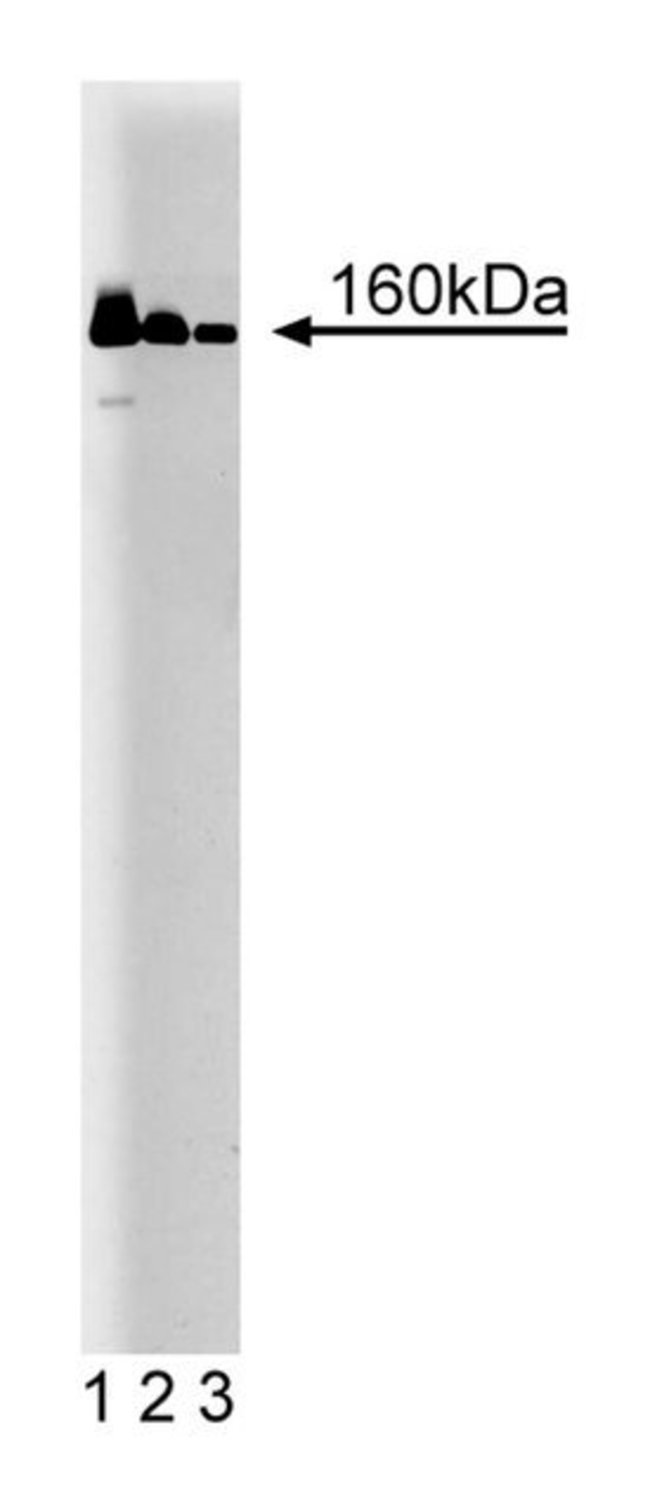MSH6 Mouse, Unlabeled, Clone: 44, BD, Mouse Monoclonal Antibody, Each

Details:
DNA mismatch repair in bacteria is carried out by the MutL, MutH, and MutS proteins. Initial binding of MutS to the mismatched DNA is followed by binding of the MutH endonuclease and MutL. Together these proteins form a complex that mediates excision repair. Mutations or deficiencies of any of these bacterial proteins results in a mutator phenotype that is characterized by genetic instability. MSH2, MSH3 and MSH6 are human homologs of MutS, while MLH1, PMS1, and PMS2 are homologs of MutL. As a heterodimer with MSH2, MSH6 binds to DNA containing G/T mismatches. The MSH2-MSH6 complex recognizes single-base mispairs and insertion/deletion loops. Binding of this complex induces conformational changes in the DNA that lead to the binding of an MLH-PMS1 complex and excision repair. Mutations in the human genes are associated with hereditary nonpolyposis colon cancer (HNPCC), a common hereditary disease in humans. HNPCC is characterized by frequent microsatellite mutations that arise from somatic mutation due to a replication error (RER ) phenotype. This phenotype is analogous to the bacterial system and is directly linked to DNA mismatch repair deficiencies.Immunofluorescence, Western Blotting
Additional Information
| SKU | 10135186 |
|---|---|
| UOM | Each |
| UNSPSC | 12352203 |
| Manufacturer Part Number | 610918 |
